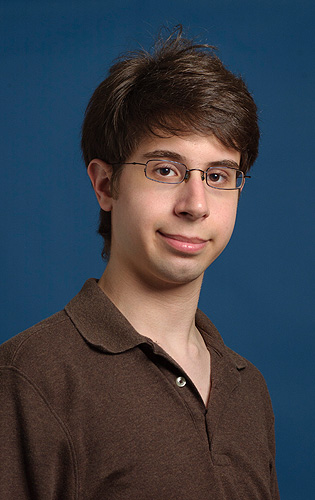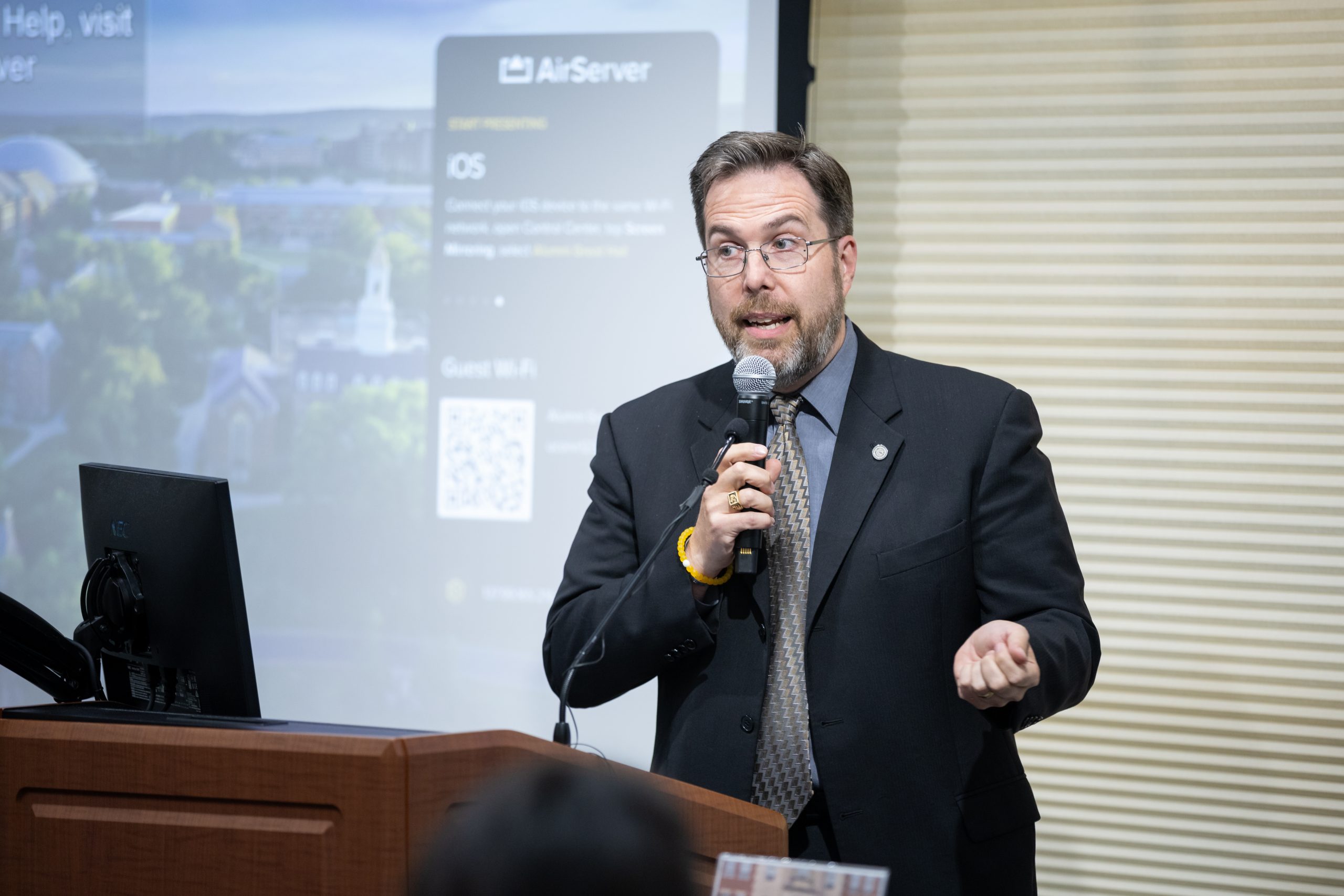As the University counts down to Commencement, UConn Today is featuring some of this year’s outstanding graduating students, nominated by their academic school or college or another University program in which they participated. For additional profiles of students in the Class of 2011, click here.

Through leadership opportunities and academic courses that complemented each other, aspiring Reform rabbi Scott Meshnick discovered that his avocation and his vocation could be one and the same.
Unsure what he wanted to study upon entering UConn, Meshnick leaned toward majoring in a subject where he is naturally strong – math or the sciences. He also got involved in the Jewish community at Hillel while taking UConn classes in Hebrew, and that clarified his choice of major.
“It just came to me the summer after my freshman year that Judaic studies is what I feel passionate about,” Meshnick says. “I’d read the Hebrew Bible as a kid, instead of hanging out with friends. When I got to college, I was able to be as religious as I wanted to be.”
Meshnick is graduating with a major in Judaic studies and a minor in human rights. He is enthusiastic about the faculty who taught him.
“UConn’s professors have studied under the best teachers in the world, and you learn what they learned,” he says, adding that professor of Hebrew, history, and Judaic studies Stuart Miller, associate professor of classics Sara Johnson, a Hellenistic studies scholar, and Hebrew lecturer Sherry Shamash were “unforgettably influential.”
Meshnick maintained a 3.55 GPA, made the Dean’s List several semesters, and received both the Sylvia and Leo Dashefsky Prize for Hebrew and the Cohen and Henes Scholarship for Excellence in Judaic Studies.
He has matched his academic accomplishments with a record of community service, much of it centered on Hillel. During his year as Hillel’s vice president of Shabbat, the Jewish Sabbath, attendance tripled – from fewer than 10 students to 30.
“Jewish custom requires 10 people at minimum to really pray,” Meshnick says. “I took the initiative to learn the prayers for Friday night services, coordinated advertising – making frequent use of Facebook, set up chairs and tables, led prayers at dinner as the Shabbat Reform service leader, and stayed to clean up.”
He was also elected as co-vice president of Tzedek, a group within Hillel that focuses on social justice and community service. When Tzedek coordinated a bake sale with UConn’s African American Cultural Center, they raised three times the amount set as the goal. The proceeds went to Jewish World Watch, an organization that is active in Darfur.
Meshnick, who has Asperger’s Syndrome, says UConn actively encouraged him to enroll, offering him accommodations for his disability. “The Center for Students with Disabilities took care of any sort of problem I’ve had,” he says.
He adds that what he values most about his experiences at UConn is the small, close-knit community of about 20 students he has become friends with.
Meshnick, of Weston, Conn., will attend graduate school at Brandeis University this fall.


